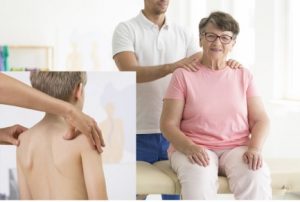Day one attendance is required to be able to participate in Days 2-3.
Limited Enrollment
This 3 day course, developed by Mary Massery, will challenge the practitioner to make a paradigm shift: connecting breathing mechanics and postural control with management of trunk pressures. Through Mary Massery’s model of postural control (Soda Pop Can Model), the speaker (a certified faculty member of Mary Massery Physical Therapy), will link breathing mechanics with motor and physiologic behaviors (a multi-system perspective). She will present novel research demonstrating the role of vocal folds as postural stabilizers, extending the concept of “core stability” from the vocal folds on the top of the trunk to the pelvic floor on the bottom. Numerous interventions will be presented that use positioning and ventilatory strategies to optimize motor performance. Neuromotor breathing retraining techniques and manual assistive cough techniques will be the focus of treatment labs. Multiple patient cases will be presented throughout the course. The emphasis of the course will be on developing practical, quick clinical solutions for pediatric and adult patients in all practice settings.
At the conclusion of Day 1, participants should be able to:
1. Describe how trunk pressures link breathing and postural control using the Soda Pop Can Model.
2. Describe the multiple, simultaneous roles of the diaphragm as related to breathing, postural control, gastroesophageal reflux, constipation, and venous return.
3. Demonstrate the role of the vocal folds in normal postural stability responses (balance) and make the case for using speaking valves for patients with tracheostomies.
4. Contrast normal infant chest wall development to those with impaired breathing mechanics.
5. Position patients for optimal physiological and biomechanical support of breathing with simple equipment (towels, pillows, etc.).
6. Use a ventilatory strategy algorithm presented in class to optimally match breathing with movements from bed mobility to athletic endeavors.
At the conclusion of Days 2- 3, participants should be able to:
7. Perform a multi-system (physical and physiologic) evaluation of motor impairments.
8.Identify the variations of “normal” breathing patterns and discuss the efficiencies/inefficiencies for individual patient conditions.
9. Evaluate need for, and demonstrate, appropriate neuromotor retraining techniques for patients with ineffective breathing/postural control strategies (health or participation deficits).
10. Participate in a live patient demonstration (if a patient is available) and suggest possible evaluation and treatment ideas based on the course material.
11. Design a targeted airway clearance program using the principles of mobilization, expectoration and oral management.
12. Demonstrate airway clearance techniques, with a heavy emphasis on manual assistive cough techniques, and apply an airway clearance algorithm to specific patients.
13. Identify thoracic cage/spine restrictions as they pertain to breathing mechanics and postural control (a very brief introduction musculoskeletal issues).
14. Evaluate need for, and demonstrate, neuromotor retraining techniques to improve breath support for voicing.
15. Suggest means for incorporating the course material into therapy activities in your clinical setting immediately
Nechama Karman received her MSPT from Columbia University in 1994, her Advanced MS in orthopedic PT from Touro College in 1998, and has completed her Health Sciences PhD coursework at Seton Hall University. Nechama is an APTA board-certified pediatric clinical specialist and the chief clinical educator at Mobility Research for LiteGait nationally and internationally. In addition, Nechama owns a private practice in NYC focusing on complex neurological conditions and complex pelvic conditions.
Nechama has completed two invited Massery faculty apprenticeships. In 2016, she became Mary’s first certified faculty member for the “Breathing” course! And in 2019, she was the first certified faculty for Mary’s “I Survived” musculoskeletal course. Two huge accomplishments! In addition, she co-authored a new one-day course with Mary: “BRAKING BAD: ECCENTRIC CONTROL FROM TALKING TO WALKING.”
One of Nechama's proudest “Mary Massery” moments occurred when she treated a man suffering from prostatectomy-related incontinence using Mary’s approach. She taught him to transfer without incontinence for the first time in 9 months - all in under 15 minutes! She is passionate about helping other therapists learn these important concepts.
"I loved this course! Nechama is passionate and knowledgeable. The experience she shared is so valuable. Great examples to help remember context! I will definitely recommend to friends and colleagues." -PT
"Nechama is very knowledgeable and easy to listen to. Great info on anatomy and physiology in relation to postural control. Definitely new outlook on things! The course booklet is very thorough. References are amazing! Slides and case study photos extremely helpful." -PT
VENUE ADDRESS
1812 N. Senate Blvd
Indianapolis, IN 46202
Directions
SUGGESTED ACCOMMODATION
Courtyard - Indianapolis at the Capital
320 North Senate Avenue
Indianapolis, IN 46204
Directions
VENUE LOCATION MAP
Click image to access Google Maps.
This course meets the criteria for 20.5 contact hours.
Application has been made to the NJ Board of Physical Therapy Examiners.
The PA and IN State Boards of Physical Therapy recognize other state's approvals.
This continuing competence activity has been approved by the NC Physical Therapy Association.
Approved provider by the KY Physical Therapy Association for 7.5 contact hours for day one and 13 contact hours for days two and three.
Approved provider by the NY State Board of Physical Therapy for 9 contact hours for day one, and 15.6 contact hours for days two-three
Approved provider of continuing education b y the American Occupational Therapy Association #3043, for 20.5 contact hours - Intermediate Level Occupational Therapy Process: assessment, intervention. The assignment of AOTA CEUs does not imply endorsement of specific course content, products or clinical procedures by AOTA
NBCOT professional development provider- 20.5 PDUs
This course is offered for up to 2.05 ASHA CEUs for (Intermediate level, Professional area).



